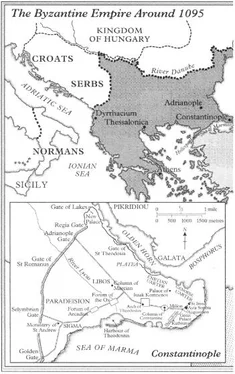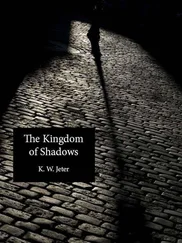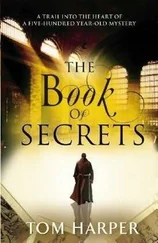Tom Harper - The mosaic of shadows
Здесь есть возможность читать онлайн «Tom Harper - The mosaic of shadows» весь текст электронной книги совершенно бесплатно (целиком полную версию без сокращений). В некоторых случаях можно слушать аудио, скачать через торрент в формате fb2 и присутствует краткое содержание. Жанр: Исторический детектив, на английском языке. Описание произведения, (предисловие) а так же отзывы посетителей доступны на портале библиотеки ЛибКат.
- Название:The mosaic of shadows
- Автор:
- Жанр:
- Год:неизвестен
- ISBN:нет данных
- Рейтинг книги:3 / 5. Голосов: 1
-
Избранное:Добавить в избранное
- Отзывы:
-
Ваша оценка:
- 60
- 1
- 2
- 3
- 4
- 5
The mosaic of shadows: краткое содержание, описание и аннотация
Предлагаем к чтению аннотацию, описание, краткое содержание или предисловие (зависит от того, что написал сам автор книги «The mosaic of shadows»). Если вы не нашли необходимую информацию о книге — напишите в комментариях, мы постараемся отыскать её.
The mosaic of shadows — читать онлайн бесплатно полную книгу (весь текст) целиком
Ниже представлен текст книги, разбитый по страницам. Система сохранения места последней прочитанной страницы, позволяет с удобством читать онлайн бесплатно книгу «The mosaic of shadows», без необходимости каждый раз заново искать на чём Вы остановились. Поставьте закладку, и сможете в любой момент перейти на страницу, на которой закончили чтение.
Интервал:
Закладка:
Normans and Norsemen, and now two King Harolds: was it just that the barbarian words all sounded alike to my unfamiliar ear, or were they all named identically?
‘I thought you said the Normans stole your kingdom. Yet now you say you eventually defeated them.’
‘We defeated Harald and the Norsemen in the north,’ said Aelric. ‘But a week later William, bastard duke of the Normans, landed on our southern shore. We marched the length of the country and brought him to battle, but we were too weary and they fought with the desperation of men without retreat. They killed our king, and took his throne. As I said, the last battle is the only one that matters.’
‘So you fled their victory, and came here?’
‘Not immediately.’ Aelric paused a moment to scratch his grey beard. ‘For three years the Bastard contented himself despoiling the south, gorging his accomplices with morsels of our land and fastening his grip on power. Then he came north. Some of our lords who had pledged themselves to him rebelled, but too late: they could not withstand the army he led, and one by one they were destroyed, or surrendered. The Bastard turned the fertile country along that coast into a wasteland: bodies lay in the streets by their thousands, and some of the living grew so hungry they gnawed on the bones of the dead. There was not one village or field that he did not raze to the ground, not one ounce of food he did not tear up and burn before our eyes. Then he invited the Danes to come and ravage our shores, so that those few shoots of life which had survived the first devastation were uprooted and consumed. After that there was no life left in the north: a man could ride through the wilderness for days, and never hear a single voice but his own. That was when I came to Byzantium.’
‘And I too.’ Sigurd’s face was pale under his bronze helmet, and his eyes twitched as if beyond his sway. ‘The Normans came to our village one evening; they killed my father and entered his house. All through the night I could hear my mother and my sisters screaming, and at dawn they were dead. I could not even bury them, for the Normans turned our home into their pyre. I was taken away by my uncle, first to Caledonia, then across the sea to Denmark, and at last, by way of many roads and rivers, to this city.’
He wiped a gauntleted hand over his cheek, then grasped his axe just below the head and pulled it from its sheath.
‘You see these notches, Demetrios? These are the number of the Normans I have killed since then.’ He snorted. ‘Or at least, the number I have killed since the last haft snapped from all the wood I carved out of it.’
‘It could still be worse,’ Aelric observed. ‘Look at the eunuch.’
‘Which eunuch?’ I asked, failing to understand his meaning.
‘The chamberlain, Krysaphios.’
‘What of him?’ In his dress, his manners, his language, he seemed as pure a Roman as I had met. ‘He did not come from Thule, did he?’
It was an innocent question, but Aelric and Sigurd laughed so loudly in response that their horses bucked and shied in alarm. ‘From England,’ Sigurd repeated. ‘Why, Demetrios, do you see a resemblance to us?’
I thought of the eunuch with his smooth, olive skin and hairless face, next to these blistered, shaggy, blue-eyed giants. ‘Not much.’
‘Krysaphios had his own encounter with the Normans,’ Aelric explained, subduing his merriment. ‘When he was a young man, he lived in Nicomedia.’
‘It was Malagina,’ Sigurd interrupted.
‘I heard Nicomedia, but it does not matter. It was in the reign of Michael Ducas, more than twenty years ago. One of the Emperor’s Norman mercenaries named Urselius proved treacherous, as is their habit, and turned against the man who paid him. He took many of the Asian provinces before he was finally captured, and during his rising there was much looting and barbarity. The rumour I have heard is that one night some of Urselius’ Norman army captured Krysaphios, then just a boy, and took him to their camp.’ There was no humour in Aelric’s face now. ‘When they released him in the morning, he had become a eunuch.’
It was not the first time I had heard such a story, for I knew that the western barbarians found the third sex at once fascinating and repellent; that many derided us for our reliance on them, and believed our whole race to be tainted by their manlessness. It needed little imagination to think what torment a gang of mercenaries, filled with drink and such beliefs, might effect on a hapless prisoner. If that had been the ordeal Krysaphios suffered, I could only admire the will he must have had to turn it to his advantage, to attain the rank he now enjoyed.
Sigurd’s voice broke into my thoughts. ‘You know that the Emperor relies on the Varangians because of the hatred we bear the Normans. You may guess how he relies on the eunuch.’
Such tales of horror dampened further conversation, and we rode on in silence, save for Father Gregorias grumbling at the back of our column: that his horse was lame, that his saddle chafed, that the water in his flask was brackish. It seemed he did not number horsemanship among his accomplishments. After a time, we splashed through a ford in the shallow river and joined the main northerly road. A high-arched aqueduct rose about half a mile away on our right, mimicking the line of the road, and we followed it as the land grew wilder. The sporadic clusters of trees we passed became more frequent, then began to reach into each other, and finally merged into a forest which pressed constantly against our path, stretching away deep into the hills. The sound of running water was never far off, and sometimes we could see the moss-covered brickwork of a cistern or channel through the branches. A few hardy wood birds whistled their song, and occasionally we would meet a lone pilgrim or merchant, but otherwise the forest seemed deserted. Pines and oaks and beech trees towered over us, and it did not take long for my fears to begin preying on me. Every snapping twig or falling branch or rustling animal had me jerking awkwardly around, scanning the underbrush for the first signs of attack. As generations of careless travellers had found to their cost, it was the perfect place for an ambush, remote and hemmed in.
Sigurd must have shared my apprehension, for at lunchtime he posted four of his men as pickets on the edge of the glade where we halted. Our horses chewed contentedly on the grass, but even the sight of open sky above us did not lift my oppressed mood, and we ate our bread in haste.
‘I’ll be glad of Christmas,’ muttered Sigurd, eyeing his meagre meal with disdain. ‘The feast of the Nativity, as you call it. If man doesn’t live by bread alone, a soldier certainly can’t.’
‘Ten days,’ agreed Aelric. ‘Then we’ll have feasting.’
‘If we’re out of this forsaken wood by then.’ Sigurd spat an olive stone into the bushes. ‘If the boy can lead us to this house we’re told of, and doesn’t run off into the trees when we’re not looking.’
Thomas, oblivious to our words, sucked on the dried dates I’d brought him. The dressing that Anna had wrapped around his leg seemed to be holding up under the strain of riding — I could see no new blood seeping through it — and I fancied that the clean air and fresh surroundings had brought a new vigour to his cheeks. It was the first time I had seen him not poised on the brink of death, and it struck me how he seemed now both younger and older. Younger in his limbs, which all seemed a half-inch too long for him, though clearly they were strong enough to wield the arbalest; younger also in his beardless cheeks, which in a year or two might be ruggedly handsome, and in his fair, uncombed hair which blew wild in the wind. But there was a hurt in his blue eyes which, even in our pastoral surroundings, was never truly gone; a heaviness in the way he carried his broad shoulders. He had known pain, I guessed, and not merely the physical kind of a Bulgar’s sword. Though he seemed placid enough for now.
Читать дальшеИнтервал:
Закладка:
Похожие книги на «The mosaic of shadows»
Представляем Вашему вниманию похожие книги на «The mosaic of shadows» списком для выбора. Мы отобрали схожую по названию и смыслу литературу в надежде предоставить читателям больше вариантов отыскать новые, интересные, ещё непрочитанные произведения.
Обсуждение, отзывы о книге «The mosaic of shadows» и просто собственные мнения читателей. Оставьте ваши комментарии, напишите, что Вы думаете о произведении, его смысле или главных героях. Укажите что конкретно понравилось, а что нет, и почему Вы так считаете.












